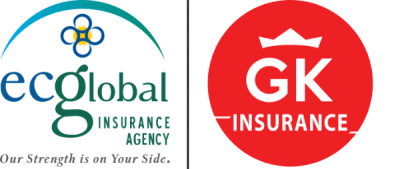FAQs
Click on any question to get started. If your question isn't here, use the search box at the top of this page to search for topics. Should you have any further questions, please consult our Contact Us page.
The price an insurance company charges for coverage, based on the frequency and cost of potential accidents, theft and other losses. Prices vary from company to company, as with any product or service. Premiums also vary depending on the amount and type of coverage purchased.
An excess is the first part of each and every claim or loss which is excluded or the amount of the claim which is deducted from each claim. That amount of the loss is born by the insured. Either a specified dollar amount or a percentage of the claim amount.
Deductibles on the other hand is a very large excess and it is common to see the word deductible rather than excess in commercial policies and home owners polices, whereas a number of you who have vehicle insurance would see the word excess. Nowadays, however, it is common to find the terms being used interchangeably.
Information that would affect an insurance company's willingness to accept a policy, or the premium it would charge. Failing to disclose a material fact could invalidate a policy. Typical examples include previous driving convictions or a history of subsidence in a house.
An insurance policy is a contract between you and an insurance company, in which the company promises to take over the financial costs of certain risks. The policy describes the item(s) covered, the risks you are covered against and specifies your rights and responsibilities, along with the terms and limits of the cover.
For an event to be insurable its happening must be accidental and not deliberate on the part of the insured. An example of a non-fortuitous event or loss is an insured intentionally setting his or her home on fire. The event must be fortuitous as far as the insured is concerned.
Indemnity is the legal principle that the policyholder should be restored to the same financial position that they enjoyed prior to a loss occurring. There are a number of options opened to an insurer which will provide the policyholder with the necessary indemnity and these are:-
- Cash Payment
- Repair
- Replacement
- Reinstatement
Click on any question to get started. If your question isn't here, use the search box at the top of this page to search for topics. Should you have any further questions, please consult our Contact Us page.
In our efforts to evaluate your risk exposure it is important for us to know the ages, driving experience, claims experience and occupations of your drivers. The data we have collected over the years allows us to analyze the risk.
1. Comprehensive
This provides cover in respect of accidental loss or damage to your vehicle caused by collision, overturning, and malicious acts. You are also covered in respect of your legal liability for damage to property, which belongs to others, and injuries caused to other persons. This cover is subject to the limits stated in your policy.
Whilst this policy does not cover every eventuality, we recommend it as it is the most extensive available.
2. Third Party Only
You are covered in respect of your legal liability for damage to property, which belongs to others, and injuries caused to other persons. It does not cover damage to your vehicle. This cover is subject to the limits stated in your policy.
The insurance contract is a personal one. This means that our decision to insure you, and the premiums you were charged was based solely on our assessment of you. You therefore cannot transfer this cover to another person, not even your child. The position is the same if you are giving the car as a gift.
10. What is 'Excess'?
The excess is the portion of a claim. In Motor, the cost of repairing or replacing your vehicle, specified as a percentage of the value of the vehicle, that you are responsible for paying, whether or not you are at fault. The Company will pay amounts over and above this figure up to the sum insured. We do not apply an excess to fire claims.
If you are involved in a minor accident, you may feel that you should not report it as it could cause your premium to be increased. However, failure to report an accident is a breach of the terms of the policy. If the other party chooses to claim on their insurance company who then seek repayment from us, your rights to protection under the policy may have been forfeited.
It is important to report all accidents and avoid unnecessary problems.
Yes. Our decision to insure you and, the premiums you are charged is based on how you intend to use the vehicle. If you need to change the use you must advise us.
Accessories, which were not fitted by the original manufacturer, are not automatically covered. It is therefore your responsibility to obtain proof of the value of these items and ensure that they are specifically insured.
Click on any question to get started. If your question isn't here, use the search box at the top of this page to search for topics. Should you have any further questions, please consult our Contact Us page.
Some policies will pay for temporary housing if a hurricane makes your dwelling uninhabitable and the damage is caused by a covered peril. Most policies also will cover reasonable expenses for removal of debris and architects and surveyors fees. However you must request these additional benefits and there is usually an additional premium attached. Speak with your insurance company or broker regarding this cover.
You will only receive compensation for damaged furniture and other contents in your private dwelling if you have insured these and therefore they are insured by the company. Depending on the policy, coverage may pay for a new replacement item, or payments may be reduced based on the item's depreciation.
Damage to motor vehicles is not covered by a homeowner’s policy. Hurricane damage, including flooding damage, will be covered by your automobile insurance, provided your policy has ''comprehensive'' coverage.
Homeowners rates usually won't go up following a single hurricane. Rates are based on property insurance payments within the territory over the past several years, plus an amount held in reserve for a hurricane or other catastrophic event. Rates usually will be increased only after a series of large catastrophic loses that depleted this reserve. A homeowner's policy is not likely to be cancelled solely because of a hurricane. Companies could decide against continuing a policy if there were hazards on the property that aggravated the damages, such as dead trees or a faulty roof, and if there had been other losses on the policy in recent years.
- Immediately report all these incidents to the police and the Fire service, in case of fire.
- Where a crime has been committed do not tamper with any potential evidence before the arrival of the police
- Take photos where possible to show entry, exit and damage
- Contact our Claims Department or your broker representative as soon as possible List all damage / loss to building and contents.
- Locate and secure you insurance policy and any other personal contractual documents.
- Take photos of damage
- Secure premises with board, tarpaulins etc. to prevent further loss or damage to building and contents
- Keep all invoices and receipts for sums spent in securing the premises
- Contact our Claims Department or your broker representative as soon as possible for guidance
- Clean up debris Salvage as much as possible.
- Dry out electrical items, clothing etc.
- If necessary, use a generator to run essential electrical appliances e.g. freezers
- If the premises are rendered uninhabitable, seek reasonably priced temporary alternative accommodation. There is some coverage under your policy.
Click on any question to get started. If your question isn't here, use the search box at the top of this page to search for topics. Should you have any further questions, please consult our Contact Us page.
The LPP provides coverage for 1 year from the date of issue and will terminate after 12 months unless renewed. The insurance cover comes into effect 10 days after the receipt of the annual premium.
Within 4 days of an event, you will receive an SMS on your mobile phone to confirm the occurrence of the triggered event and the payout amount. You do not need to fill out any forms. Within 14 days the payment will be deposited to your bank account.
15. Who will pay me?
The distribution channel where you purchased the LPP, e.g. a credit union, will deposit the payout amount to your account.
You will still get the payout even if you do not experience any loss, because the actual payout is only based on wind speed and rainfall amount as recorded by the independent calculation agents.
The maximum annual payout per location is 100% of the sum insured. If this is exhausted in one or two events, you are advised to renew the cover.
Click on any question to get started. If your question isn't here, use the search box at the top of this page to search for topics. Should you have any further questions, please consult our Contact Us page.
If the insured vehicle is out of use as a result of loss or damage insured under the policy we will indemnify you in respect of the necessary daily hiring charges incurred in obtaining a temporary replacement car from any recognized self drive hire operator. Subject to the policy terms and conditions.
The comprehensive policy automatically provides up to $3,000.00 coverage for accidental damage to glass and windscreen of the insured vehicle, with no applicable excess. If the insured wishes he/she can increase that amount to $5,000.00 and pay the appropriate additional premium.
If you and/or your spouse are injured while traveling in or getting into or out of any motor car we will pay to you or your legal representatives the compensation as specified in the policy.
4. Agreed Value Charge
The amount by which the insurer and insured agrees to insure the vehicle, without the deduction of depreciation should the vehicle be involved in an accident during the policy period. Should the vehicle be involved in an accident and the vehicle is considered a constructive total loss, the insurer would pay the insured value at the start of the current policy period.
5. Deductible/Excess
The first part of the loss which must be borne by the insured.
6. No Claims Discount
A discount an insurer agrees to provide the insured for that insured’s claim free driving experience. The no claim discount increases for every year the insured does have a claim. The maximum no claim discount one can enjoy is normally 60%.

EC Global Insurance Agency, Agents for GK Insurance (EC) Ltd will not contact its clients or anyone else by e-mail to confirm financial transactions, or to confirm or request personal account information or any other type of sensitive information.
Contact Us
1st Floor Financial Centre Building
Bridge Street,
Castries,
P O Box 1860,
Saint Lucia
Tel: (758) 451-3244Fax: (758) 458-1222
Email: information@ecglobalinsurance.com
